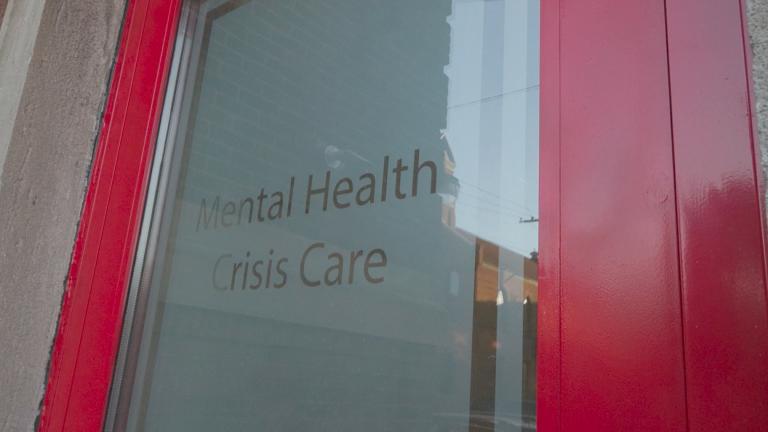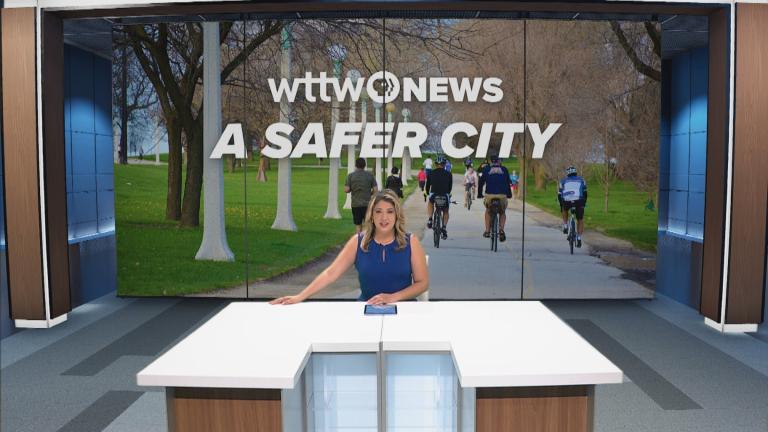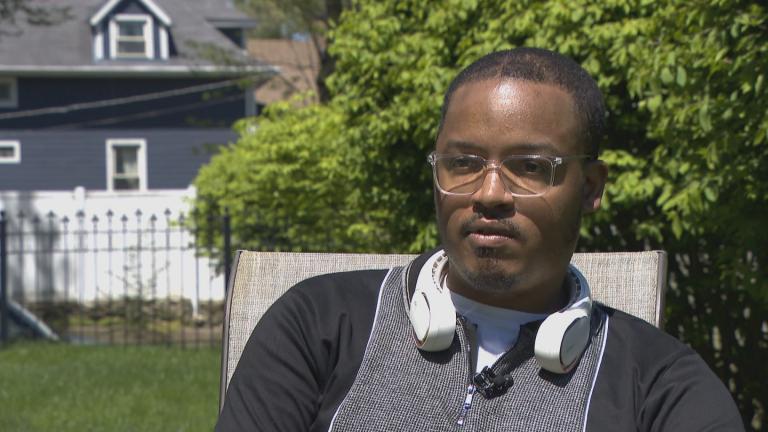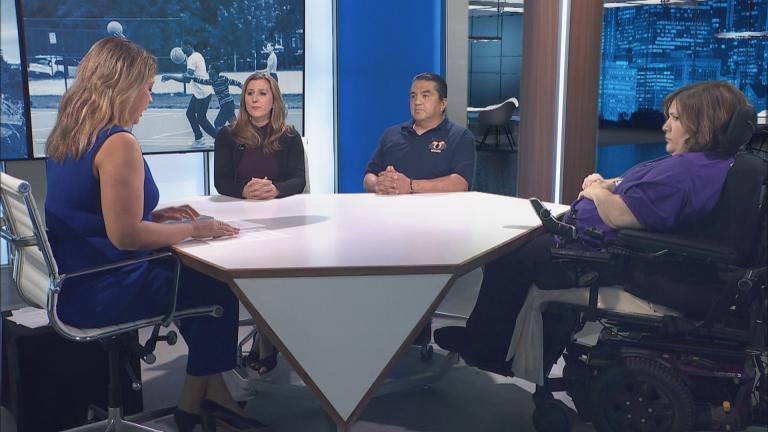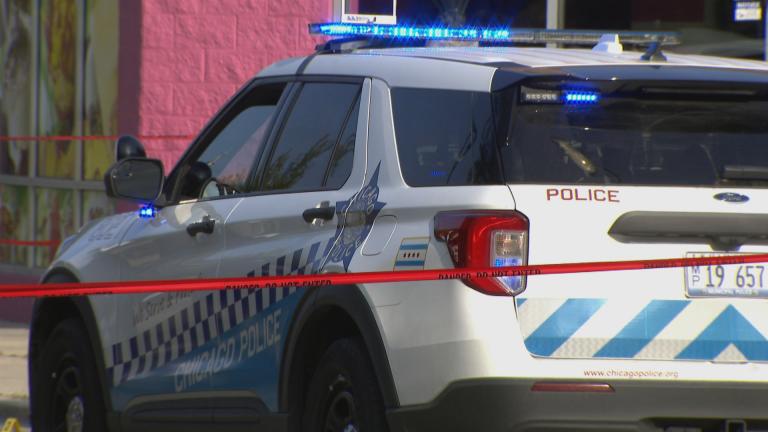The city of Chicago spent $126.5 million on overtime for members of the Chicago Police Department during the first six months of 2023 — nearly 50% more than during the same period last year, according to records obtained by WTTW News.
It took less than five months for CPD to exhaust the $100 million earmarked for police overtime set by the Chicago City Council as part of the city’s 2023 budget, according to data obtained by WTTW News through a Freedom of Information Act request.
A CPD spokesperson said CPD “takes its fiscal responsibility seriously and regularly reviews internal operations to ensure the overtime budget is used efficiently and effectively.”
CPD’s operations have not only been strained by a nationwide staffing crunch but also by the need to police “major events and large gatherings throughout Chicago as the city’s tourism operations fully resume following the COVID-19 pandemic,” according to the statement.
The number of sworn Chicago police officers rose by less than 1% between June 2022 and July 2023, according to data compiled by the inspector general’s office.
In all, the city spent approximately $238 million on overtime during the first half of 2023 across departments, an increase of 24.6% as compared with the first half of 2022, according to city data.
The data obtained by WTTW News details overtime spending through June 30 — one day before NASCAR transformed downtown into a racetrack and complicated the city’s violence prevention strategy during the Fourth of July weekend, traditionally one of the most violent of the year.
Chicago Police officers had their regularly scheduled days off canceled that weekend, which will no doubt add to the city’s tab for police overtime during the second half of the year. City officials told WTTW News that data was not yet available for public review.
CPD spent $210.5 million on police overtime in 2022, 56% more than in 2021, according to data obtained by WTTW news. If the current rate of police overtime spending continues in the second half of 2023, the city will end the year having spent more than $250 million, a new record.
City officials offered no explanation about why police overtime spending spiked in March, increasing $4.3 million as compared with the previous month.
Inspector General Deborah Witzburg said the city’s massive police overtime bill during the first six months of 2023 coupled with several years of double-digit increases in overtime spending indicates a “deep problem” with how CPD is managed and how the city’s public safety resources are allocated.
“We as a city need to have a reckoning,” Witzburg said. “What should the police department do and how should they do it?”
The issue facing CPD is not directly tied to the fact that the department has nearly 1,700 vacant positions, Witzburg said.
“We are not going to hire our way out of this problem,” Witzburg said, noting that Chicago has significantly more officers per capita than either New York or Los Angeles, where the rate of violent crime is significantly lower than in Chicago.
Chicago recorded 301 murders in the first six months of 2023, a 6% decrease from the first six months of 2022, according to police data.
In 30 cities across the nation, including New York, Atlanta and Chicago, homicides declined 9.4% in the first half of this year compared to the first half of last year, according to a report released Thursday by the Council on Criminal Justice.
Spending more on police overtime does not guarantee a reduction in crime or violence, said Witzburg, whose office is charged with ferreting out wasteful city spending and enforcing a court order that requires city officials to change the way they train, supervise and discipline officers.
“This is an enormously complicated, seemingly intractable problem,” said Witzburg, adding that the massive amount of money spent on police overtime is a manifestation of serious problems in how the department is managed.
Mayor Brandon Johnson took office May 15, and vowed to overhaul Chicago’s approach to public safety by focusing on the root causes of crime and violence by increasing funding for youth employment programs and expanding mental health services across the city.
Johnson’s spokesperson did not respond to questions from WTTW News about whether his office will seek to reduce police overtime spending as part of that effort.
Police overtime spending is a perennial flashpoint in the annual negotiations over the city’s spending plan. Discussions over the 2024 budget got underway in earnest this month.
Johnson has endorsed 33rd Ward Ald. Rossana Rodriguez Sanchez’s proposal known as “Treatment Not Trauma” that would reduce CPD’s $1.94 billion budget to reopen the mental health clinics closed in 2011 by former Mayor Rahm Emanuel and establish a citywide program that would send emergency medical technicians and mental health professionals to calls for help from those in crisis.
Rodriguez Sanchez, the chair of City Council’s Committee on Health and Human Relations, will hold a hearing on the proposal at 10 a.m. Monday.
The debate over Treatment Not Trauma and negotiations over the city’s 2024 budget should fuel efforts to reenvision the city’s spending on public safety and how it uses its resources, Witzburg said.
“We can’t do responsible budgeting this way,” Witzburg said.
Chicago’s watchdog has been warning for more than six years that the money spent to pay officers overtime was “wasted” and fueled burnout, making misconduct and abuse more likely, first in an audit released in 2017 and then in a follow-up audit released in February 2020.
That audit included a recommendation that Police Department leadership should “limit the total hours officers work, including secondary employment, in order to ensure officers are well-rested and ready to effectively serve the public.” That policy has not been implemented.
Johnson and the City Council must “right size the footprint of the police department” by deciding which functions sworn officers should be responsible for, what non-sworn members of the department should tackle and which should be handled by another city department or agency, Witzburg said.
Witzburg has called for the city to commission a report that determines where and when officers should be deployed.
A report by University of Chicago’s Crime Lab concluded that the department was not assigning officers to work when and where most violent crimes were taking place at night on the South and West sides, but former Supt. David Brown did not make any changes to how officers were deployed.
Any effort to move police resources from wealthy areas of the city could trigger an outcry from members of the Chicago City Council and residents of the North Side and downtown.
Note: This article was published July 24 and updated with video July 25.
Contact Heather Cherone: @HeatherCherone | (773) 569-1863 | [email protected]

